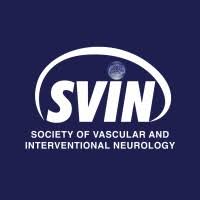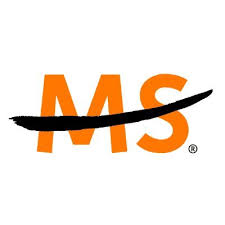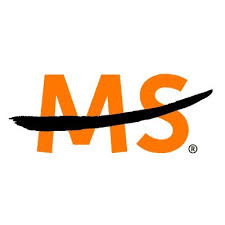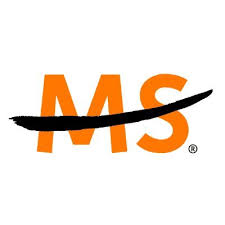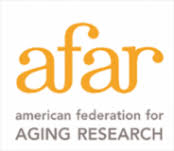
McKnight Brain Research Foundation Innovator Awards in Cognitive Aging and Memory Loss
The major goal of the program is to identify emerging scientific leaders by building a cadre of outstanding research scientists across the United States to lead transformative research in the field of cognitive aging.
The program targets full-time independent investigators at the rank of Assistant Professor or Associate Professor (or equivalent) with established independent research programs who have already demonstrated a firm commitment to cognitive aging research. It will add substantial start-up support for a period of three years to help these investigators develop and/or expand an outstanding research program in cognitive aging and memory loss.
One award will be made to support innovative studies focusing on clinical translational research and another will support innovative studies of basic biological mechanisms underlying cognitive aging and age-related memory loss. It is expected that the proposed research will yield transformative discoveries and thus proposals are invited that are high risk/high gain in nature and that would be less suitable for conventional sources of funding. For example, this support could be deployed towards conducting a pilot clinical trial, developing proof-of concept interventions to ameliorate age associated cognitive impairment, gather preclinical data to accelerate testing of potential interventions, and further study the mechanistic basis of age-associated cognitive impairment in relevant experimental models with a view to identifying novel treatment targets. Scientists proposing to pursue basic research should clearly articulate the potential of their findings to be translated into clinically relevant strategies, and/or treatments. Research studies at the intersection of age-associated cognitive changes and disease-related cognitive impairment may be considered if a strong case can be made for their relevance to cognitive aging and age-related memory loss. However, research that is primarily focused on neurodegenerative diseases (e.g., Alzheimer’s disease) will not be supported.
Two 3-year awards of $750,000 (USD) each will be made in 2025, of which a maximum of 10% may be used for indirect expenses or institutional overhead.
Selection Criteria
Five criteria are used to determine the merit of an application:
- Qualifications of the applicant;
- Quality and promise of the proposed research and its relevance to cognitive aging/age-related memory loss;
- Novelty/impact of the proposed research and potential to have transformative clinical impact;
- Excellence of the research environment;
- The commitment by the institution to the applicant as described in the institutional commitment form and letter.
Application Procedures and Timeline
Please refer to the application instructions. Incomplete applications cannot be considered. All applications must be submitted via email to afarapplication@afar.org.
The applications will be reviewed by a committee whose recommendations will be presented to MBRF and AFAR for final funding decisions.
Please review this link which includes suggestions for submitting an LOI or application to AFAR. Click here for our Frequently Asked Questions page. If you are using animals in your research, please review Principles of Animal Use for Gerontological Research or this recent webinar recording from the Nathan Shock Centers of Excellence: https://nathanshockcenters.org...
MBRF and AFAR will not provide reviewer critiques to any applicants at any review level.
Timeline:
Application deadline: August 12, 2025
Anticipated Award Announcement: September 30, 2025
Award Start Date: October 1, 2025
AI Based Application Success Predictor
1. ✔️ Applicant Credentials & Track Record
AFAR prioritizes early-career researchers—particularly junior faculty or postdocs—who have strong credentials in aging biology .
Evaluators look for evidence of career advancement potential in aging research .
2. 🧪 Scientific Excellence & Fit with Aging Biology
Research proposals must explore the basic biology of aging or apply aging mechanisms to age-related diseases—not merely disease-focused projects .
Study designs must use appropriate age models, be statistically sound, and include clear contingency plans .
3. 🔬 Strong Research Environment
Proposals should detail an excellent institutional support structure, including mentorship or team expertise in aging biology .
Collaborations with aging experts (e.g., Nathan Shock Centers) or established labs are viewed favorably .
4. 📈 Career Development & Impact Potential
AFAR favors projects likely to advance the applicant's independent research trajectory in gerontology
For scholars, a clear narrative showing how the grant will lead to larger-scale funding is essential.
5. 🧩 Structured Multi-Stage Review Process
Most programs use LOI → invited full application → selection committee review; compliance with instructions is critical
They do not provide reviewer critiques, so your submission must be strong on first pass .
6. 💸 Budget Accuracy & Fund Use
Funding covers direct research costs—salaries, supplies—with no indirect costs allowed .
Ensure project scope fits budget and award duration; avoid overly ambitious plans .
7. 📊 Rigor & Clarity in Proposal Writing
The abstract and Specific Aims are crucial—grabbing reviewers’ interest early is key .
Use clear, jargon‑free language, especially in describing significance to aging biology
8. 🗓️ Post‑Award Engagement
Funding recipients are expected to attend AFAR’s annual grantee conference, present progress, and submit narrative and financial reports .
📝 Summary Table
| Predictor | What to Do |
|---|---|
| Credentials | Show strong aging‑related track record |
| Research fit | Focus on basic aging biology with age‑appropriate models |
| Institution support | Demonstrate mentorship and aging‑expert collaborations |
| Career impact | Highlight how project pushes aging research trajectory |
| Review compliance | Follow LOI/full‑application structure meticulously |
| Budget realism | Align project scope with funding limits; no overheads |
| Writing clarity & rigor | Craft engaging aims and accessible narrative |
| Engagement & accountability | Commit to conference participation and reporting |
🛠 Pro Tips
Engage aging experts early—including prospective mentors—in your planning.
Fit the model—justify age choices (e.g., why an 18‑month mouse is “old”) explicitly.
Clarify project scope to match funding duration; avoid overreach.
Prioritize a compelling abstract and aims page—set the tone.
Eliminate jargon; make aging relevance clear to non-specialist reviewers.
Ensure institutional endorsement and readiness to attend the AFAR conference.
Specialties
Eligibility Requirements
To be eligible, the applicant must:
- Have completed research training prior to the beginning of this award (October 1, 2025):
o PhD candidates: no more than 7 years from the completion of formal post-doctoral research training post-PhD,
o MD or combined degree candidates: no more than 12 years from the date when finished residency. - Exceptions to the 7 and 12 year limits may be considered for certain life events (e.g. familial, personal commitments or other exceptional circumstances). An exception request can be submitted by emailing an NIH-style biosketch to AFAR at grants@afar.org at least one week prior to the deadline date.
- Be an independent investigator at the rank of Assistant Professor or Associate Professor (promoted to the rank of Associate Professor no earlier than October 1, 2022), who has received R01 funding (or equivalent funding such as an NIH DP5, R35 or NSF Research awards.)
- Be tenure-track faculty or equivalent in an academic or non-profit institution with evidence of long-term institutional support as indicated by commitment of resources including independent laboratory space, start-up research funds and personnel. Candidates not in a tenure-track position are also eligible and should demonstrate similar evidence of long-term institutional support and not be in a time-limited appointment.
- Have a proven track record of research accomplishments in cognitive aging as indicated by their publications in high-impact journals, awards, and other metrics of peer recognition.
- Provide evidence of institutional commitment as described in a form completed by the Dean or CEO and a letter of commitment signed by the Department Chair.
- Be in full time employment at an academic or non-profit research institution in the United States.
The program does not provide support for:
- Senior faculty, i.e., at the rank of Associate Professor or higher who have held this position before October 1, 2022.
- Assistant Professors who have not yet received R01 or equivalent extramural independent funding.
- Investigators who are conducting research at a federal government or for-profit institution.
- See comment above about disease specific research.
Questions about eligibility and suitability of research project can be addressed to grants@afar.org.
Sponsor Details
Sponsor Institute/Organizations: American Federation for Aging Research
Sponsor Type: Corporate/Non-Profit
Address: 55 West 39th Street, 16th Floor New York, NY 10018 Phone: (212) 703-9977 Toll-Free: (888) 582-2327 Fax: (212) 997-0330 Email: info@afar.org
Legal & Affiliation Disclaimer
Affiliation Disclaimer: Trialect operates independently and is not affiliated with, endorsed by, or supported by any sponsors or organizations posting on the GrantsBoard platform. As an independent aggregator of publicly available funding opportunities, Trialect provides equal access to information for all users without endorsing any specific funding source, content, organization, or sponsor. Trialect assumes no responsibility for the content posted by sponsors or third parties.
Subscription Disclaimer: Upon logging into Trialect, you may choose to SUBSCRIBE to GrantsBoard for timely notifications of funding opportunities and to access exclusive benefits, such as priority alerts, reminders, personalized recommendations, and additional application support. However, users are advised to contact sponsors directly for any questions and are not required to subscribe to engage with funding opportunities.
Content Ownership and Copyright Disclaimer: Trialect respects the intellectual property rights of all organizations and individuals. All content posted on GrantsBoard is provided solely for informational purposes and remains the property of the original owners. Trialect does not claim ownership of, nor does it have any proprietary interest in, content provided by third-party sponsors. Users are encouraged to verify content and ownership directly with the posting sponsor.
Fair Use Disclaimer: The information and content available on GrantsBoard are compiled from publicly accessible sources in alignment with fair use principles under U.S. copyright law. Trialect serves as an aggregator of this content, offering it to users in good faith and with the understanding that it is available for public dissemination. Any organization or individual who believes their intellectual property rights have been violated is encouraged to contact us for prompt resolution.
Third-Party Posting Responsibility Disclaimer: Trialect is a neutral platform that allows third-party sponsors to post funding opportunities for informational purposes only. Sponsors are solely responsible for ensuring that their postings comply with copyright, trademark, and other intellectual property laws. Trialect assumes no liability for any copyright or intellectual property infringements in third-party content and will take appropriate action to address any substantiated claims.
Accuracy and Verification Disclaimer: Trialect makes no warranties regarding the accuracy, completeness, or reliability of the information provided by sponsors. Users are advised to verify the details of any funding opportunity directly with the sponsor before taking action. Trialect cannot be held liable for any discrepancies, omissions, or inaccuracies in third-party postings.
Notice and Takedown Policy: Trialect is committed to upholding copyright law and protecting the rights of intellectual property owners. If you believe that content on GrantsBoard infringes your copyright or intellectual property rights, please contact us with detailed information about the claim. Upon receipt of a valid notice, Trialect will promptly investigate and, where appropriate, remove or disable access to the infringing content.
Grant, Award
Letter Of Intent Deadline:
Aug 12, 2025
Final Deadline:
Aug 12, 2025
Funding Amount:
$750,000
Host Details
Affiliation: American Federation for Aging Research
Address: 55 West 39th Street, 16th Floor New York, NY 10018 Phone: (212) 703-9977 Toll-Free: (888) 582-2327 Fax: (212) 997-0330 Email: info@afar.org
Website URL: https://www.afar.org/grants/mcknight-award
Disclaimer:It is mandatory that all applicants carry workplace liability insurance, e.g., https://www.protrip-world-liability.com (Erasmus students use this package and typically costs around 5 € per month - please check) in addition to health insurance when you join any of the onsite Trialect partnered fellowships.





